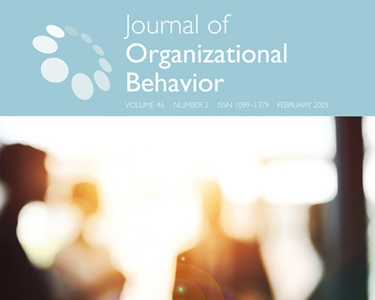Quiet Workaholics? The Link Between Workaholism and Employee Silence and Moral Voice as Explained by the Social-Cognitive Theory of Morality
Academic Publications

Author(s): Knoll, M., Fida, R., Marzocchi, I., Searle, R. H., Connelly, C. E., & Ronchetti, M.
Date: 2025
Resource: Journal of Organizational Behavior
When employees engage in potentially harmful behavior, organizations and societies rely on others to voice these issues. We propose that workaholism, a way that some individuals develop to deal with and thrive in today’s intense and demanding work environment, reduces these individuals’ intention to engage in moral voice and increases employee silence. Drawing on social-cognitive theory of morality, we propose that this occurs because workaholism, being driven by an inner compulsion to working extensively, disengages moral self-regulation which, in turn, affects both the activation of moral behavior (i.e., voice intentions) and the inhibition of immoral behavior (i.e., employee silence). Further, based on social-cognitive theory’s premise that moral behavior is jointly regulated by personal and social standards, we propose that a context that endorses this inner pressure to work (i.e., climate of self-interest) strengthens the relationship between workaholism and moral disengagement. Findings from two three-wave time-lagged studies of Italian and UK employees suggest that workaholism—but not workload—is associated with moral disengagement and indirectly with more silence and less moral voice intention. Additionally, Study 2’s moderated-mediation model showed that perceived climate of self-interest moderates the relationship between workaholism and moral disengagement and revealed dimension-specific effects of workaholism.
Go to journal page View all resourcesRelated Research Areas: Knowledge Hiding & Sharing